Barak UpdatesHappeningsBreaking NewsFeature Story
An unsung hero: Boycotting the British train, he went on foot from Karimganj to Bombay, writes Sudarshan Gupta
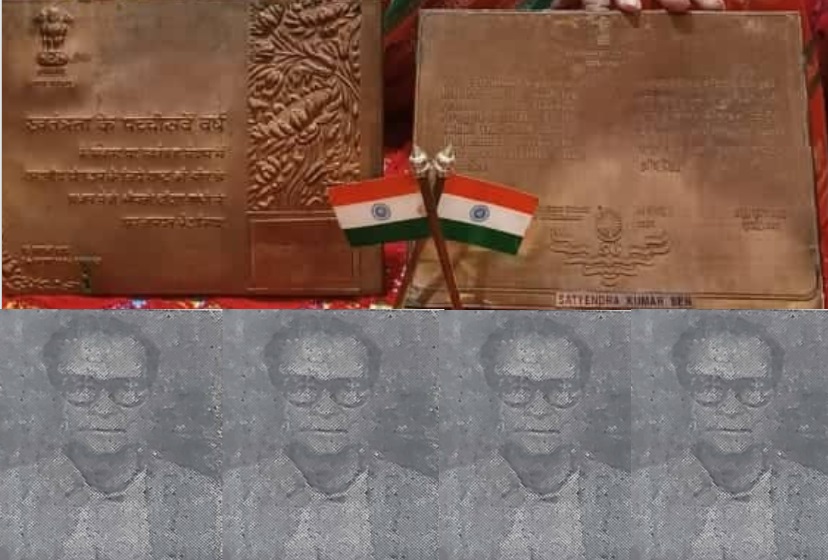

Aug. 15: Once in a country, a man is born with a genius that seems to be God-like and fortunate indeed is the country where such a man is born, for it becomes deathless for all times, The career of such individuals remain as a source of inspiration for posterity. However, when posterity remains uninformed about their predecessors, then they fail to exhibit the true respect which they ought to have shown towards the nation. There are innumerable such men and women who though made a mark in history, yet at the same time, remained unsung.
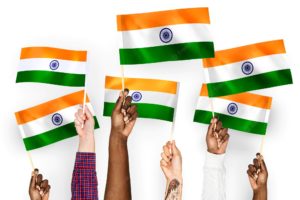 On this day of 76th year of Indian Independence, when the nation is celebrating ‘Azadi Ka Amrit Mahotsav’, it’s the duty of the government as well as of the citizens to bring to light the exploits of all those unsung heroes, who have put in their lifetime contribution for liberating the country from the grip of alien rule. This write up is thus a humble endeavour to let posterity know the role played by one such freedom fighters of this part of our region, who during his teenage in 1934 boycotted the British Railways and went on foot from Karimganj to Bombay to attend the Congress session. Well, it may sound like a Bollywood reel life story, but on the contrary, the footprints on the sands of time provides testimony to the exploits of such real life heroes.
On this day of 76th year of Indian Independence, when the nation is celebrating ‘Azadi Ka Amrit Mahotsav’, it’s the duty of the government as well as of the citizens to bring to light the exploits of all those unsung heroes, who have put in their lifetime contribution for liberating the country from the grip of alien rule. This write up is thus a humble endeavour to let posterity know the role played by one such freedom fighters of this part of our region, who during his teenage in 1934 boycotted the British Railways and went on foot from Karimganj to Bombay to attend the Congress session. Well, it may sound like a Bollywood reel life story, but on the contrary, the footprints on the sands of time provides testimony to the exploits of such real life heroes.
 It is our utter misfortune that presently, the values of generations of freedom fighters seem to be vanishing into “the sands of time”. It is thus a timely attempt to revive the great Indian saga of independence. The article under review bears a testimony to the humble effort of mine to bring to the limelight, the exploits of one such satyagrahi of the then Barak and Surma Valley, Satyendra Kumar Sen.
It is our utter misfortune that presently, the values of generations of freedom fighters seem to be vanishing into “the sands of time”. It is thus a timely attempt to revive the great Indian saga of independence. The article under review bears a testimony to the humble effort of mine to bring to the limelight, the exploits of one such satyagrahi of the then Barak and Surma Valley, Satyendra Kumar Sen.
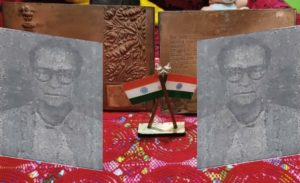 Satyendra Kumar Sen was born at Gourisankar, P. S. Kulaura, District- Sylhet (presently in Bangladesh) on 8 January, 1912, a younger son of well-to-do parents, lshwar Chandra Sen and Kripamoyi Sen. Passing the high school, he left schooling in the year 1930 and joined the ongoing Civil Disobedience Movement. Under the leadership of Mahatma Gandhi, the people of the entire country participated in the Civil Disobedience Movement launched by the Indian National Congress. On 7 May, 1930, a huge procession was on the road of Srihatta town (presently in Bangladesh). But the Government followed a policy of repression to suppress the movement. A great number of the Satyagrahis were sent behind the bars and lathi charges were inflicted upon them to suppress the movement. Young Satyendra Sen and his school mates were watching all these inhuman atrocities perpetrated on the innocent people. He was deeply moved at this incident and joined the procession.
Satyendra Kumar Sen was born at Gourisankar, P. S. Kulaura, District- Sylhet (presently in Bangladesh) on 8 January, 1912, a younger son of well-to-do parents, lshwar Chandra Sen and Kripamoyi Sen. Passing the high school, he left schooling in the year 1930 and joined the ongoing Civil Disobedience Movement. Under the leadership of Mahatma Gandhi, the people of the entire country participated in the Civil Disobedience Movement launched by the Indian National Congress. On 7 May, 1930, a huge procession was on the road of Srihatta town (presently in Bangladesh). But the Government followed a policy of repression to suppress the movement. A great number of the Satyagrahis were sent behind the bars and lathi charges were inflicted upon them to suppress the movement. Young Satyendra Sen and his school mates were watching all these inhuman atrocities perpetrated on the innocent people. He was deeply moved at this incident and joined the procession.
 Being initiated into the Indian freedom movement, Satyendra Kr Sen refused to abide by the Cunningham Circular (The circular was aimed to forbade students from participating in political activities and so, it raised a very strong response), and thereby gave up schooling and enlisted his name as a Satyagrahi in the local Congress office. He joined the Civil Disobedience movement under the leadership of Sarala Bala Deb by picketing at liquor shops, opium- dens and foreign cloth- dealer shops at Karimganj as directed by the Secretary of Karimganj and Sylhet District Congress Committee. The government used all its machineries to suppress the movement. Many picketers along with Satyendra Sen were arrested. In the trial at Karimganj Court, he was sentenced for three months rigorous imprisonment in Karimganj and then transferred to Sylhet District Jail.
Being initiated into the Indian freedom movement, Satyendra Kr Sen refused to abide by the Cunningham Circular (The circular was aimed to forbade students from participating in political activities and so, it raised a very strong response), and thereby gave up schooling and enlisted his name as a Satyagrahi in the local Congress office. He joined the Civil Disobedience movement under the leadership of Sarala Bala Deb by picketing at liquor shops, opium- dens and foreign cloth- dealer shops at Karimganj as directed by the Secretary of Karimganj and Sylhet District Congress Committee. The government used all its machineries to suppress the movement. Many picketers along with Satyendra Sen were arrested. In the trial at Karimganj Court, he was sentenced for three months rigorous imprisonment in Karimganj and then transferred to Sylhet District Jail.
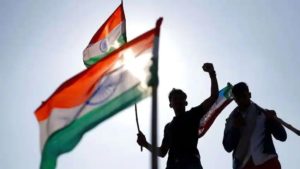 In the year 1932, as directed by the Karimganj District Congress Committee, he had taken an active part in hoisting the National Flag at Jaldup Thana (Presently in Bangladesh) and was arrested along with another Ram Kamal Nath. He was made to appear at the Karimganj Court, where the judge sentenced him for six months rigorous imprisonment and a fine of Rs.100 was also imposed upon him. But as he was unable to pay the amount of Rs.300, so he was imprisoned for another three months, in the Court of Mahendra Deka, E.A.C, Karimganj.
In the year 1932, as directed by the Karimganj District Congress Committee, he had taken an active part in hoisting the National Flag at Jaldup Thana (Presently in Bangladesh) and was arrested along with another Ram Kamal Nath. He was made to appear at the Karimganj Court, where the judge sentenced him for six months rigorous imprisonment and a fine of Rs.100 was also imposed upon him. But as he was unable to pay the amount of Rs.300, so he was imprisoned for another three months, in the Court of Mahendra Deka, E.A.C, Karimganj.
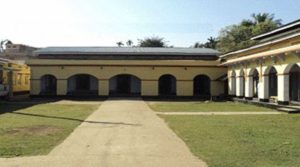
On his release from jail on November 1932, after nine months imprisonment, Satyendra Kumar Sen was selected as the Chairman of the “Reception Committee, Karimganj, Sub-Divisional Political Conference” at Biani Bazar (presently in Bangladesh), to be held in December, 1932. The said committee was declared illegal by the government and so for conducting the meeting, he was imprisoned and sentenced for one year rigorous imprisonment in the court of S.D.C. Karimganj and was later on transferred to Silchar District Jail. He was by that time only 20 years old.

The most noteworthy incident of his career is quoted here from an interview given by Satyendra Kumar Sen at All India Radio (AIR), Silchar on 8 November, 1988. In that interview, he said, “In the year 1934, having received a farewell from the people of Karimganj at Kalibari Prangon, I started for Bombay on foot along with my co-worker Karuna Kanta Roy and attended as a representative of the Surma Valley in the Indian National Congress Session to be held in Bombay”. On their way, they were given reception wherever they halted, such as, Kumilya Shayadpur, Nadiya, Sodepur Khadi Protisthan Ashram, Bangiya Pradeshik Rashtriya Committee at Dharmatala Street, Calcutta etc.
 At Calcutta they came in close contact with the then editor of the ‘Ananda Bazar Patrika”, who supplied them detailed maps describing the route from Calcutta to Bombay. The news of their unconventional march to Bombay on foot was then published not only in Ananda Bazar Patrika, but also in other leading papers of the country like Hindusthan Standard, Delhi times, Bombay Free
At Calcutta they came in close contact with the then editor of the ‘Ananda Bazar Patrika”, who supplied them detailed maps describing the route from Calcutta to Bombay. The news of their unconventional march to Bombay on foot was then published not only in Ananda Bazar Patrika, but also in other leading papers of the country like Hindusthan Standard, Delhi times, Bombay Free
Press Journal along with their photographs. As a result of the widespread publicity in the newspapers, they got help and co-operation from the people throughout their journey. Before leaving Calcutta. they went to Belur Math and from there to Santiniketan, where they were fortunate enough to meet with Rabindranath Tagore, who blessed them and wished success in their mission.
 From Calcutta, they went to Wardah via Birbhum, Singhbhum, Vindhyas & Nagpur. At that time, Mahatma Gandhi was at Sevagram, Wardah. In order to meet Mahatma Gandhi, both Satyendra Sen and Karuna Kanta Roy stayed at the guest house of the notable industrialist Dharm Raj Bajaj. Mrs. Jamunalal Bajaj took them at Sevagram, Wardah, where they met the Mahatma. Gandhi received them cordially and advised them to get admission in the Kashi Vidyapith, after the Bombay session was over. He told his personal secretary Kaka Keralkar to write letters of introduction to Lal Bahadur Shastri, who was then serving the Kashi Vidyapith and also to Jay Prakash Narayan who was the then Principal of the Vidyapith.
From Calcutta, they went to Wardah via Birbhum, Singhbhum, Vindhyas & Nagpur. At that time, Mahatma Gandhi was at Sevagram, Wardah. In order to meet Mahatma Gandhi, both Satyendra Sen and Karuna Kanta Roy stayed at the guest house of the notable industrialist Dharm Raj Bajaj. Mrs. Jamunalal Bajaj took them at Sevagram, Wardah, where they met the Mahatma. Gandhi received them cordially and advised them to get admission in the Kashi Vidyapith, after the Bombay session was over. He told his personal secretary Kaka Keralkar to write letters of introduction to Lal Bahadur Shastri, who was then serving the Kashi Vidyapith and also to Jay Prakash Narayan who was the then Principal of the Vidyapith.
 Both of them were lucky enough to meet with Jawaharlal Nehru, Sardar Patel, Frontier Gandhi Khan Abdul Gaffar Khan, Dr. Rajendra Prasad, Sarojini Naidu, reverend C. F. Andrews and many others in meeting of the Working Committee of Congress at Wardha Ashram. From Wardha, Satyendra Kumar Sen along with K K. Roy again started their journey on foot via Nasik and Poona and reached Bombay. In Bombay, they went to the house of C F. Nalim, the then Mayor of Bombay who was also the Chairman of the Reception Committee of the Bombay Session of the Congress. He gave a royal reception to both of them. After the Bombay session was over, both of them got admitted at the Kashi Vidyapith as per the advice and instruction of Mahatma Gandhi. There at Kashi Vidyapith, they came into very close contact with Lal Bahadur Shastri and Joy Prakash Narayan.
Both of them were lucky enough to meet with Jawaharlal Nehru, Sardar Patel, Frontier Gandhi Khan Abdul Gaffar Khan, Dr. Rajendra Prasad, Sarojini Naidu, reverend C. F. Andrews and many others in meeting of the Working Committee of Congress at Wardha Ashram. From Wardha, Satyendra Kumar Sen along with K K. Roy again started their journey on foot via Nasik and Poona and reached Bombay. In Bombay, they went to the house of C F. Nalim, the then Mayor of Bombay who was also the Chairman of the Reception Committee of the Bombay Session of the Congress. He gave a royal reception to both of them. After the Bombay session was over, both of them got admitted at the Kashi Vidyapith as per the advice and instruction of Mahatma Gandhi. There at Kashi Vidyapith, they came into very close contact with Lal Bahadur Shastri and Joy Prakash Narayan.
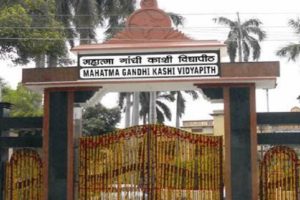 But it was to his utter misfortune that Satyendra Kumar Sen was then suffering very seriously of black fever and was admitted in the Ramakrishna Mission Hospital, Varanasi. On recovery, he left Varanasi and came back to Sylhet with new plans for the future course of actions to be followed.
But it was to his utter misfortune that Satyendra Kumar Sen was then suffering very seriously of black fever and was admitted in the Ramakrishna Mission Hospital, Varanasi. On recovery, he left Varanasi and came back to Sylhet with new plans for the future course of actions to be followed.
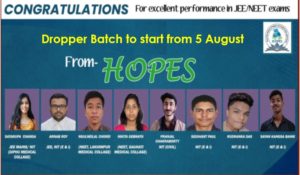 Satyendra Sen served the ‘Sodepur Khadi Prothistan” as the in-charge of its sales department for the years 1935-36 and took active part in the “Congress Konok Jayanti Celebration” and “Khadi Exhibition” which was organised by some renowned personalities of Silchar like, Late Satindra Mohan Dev, Dhirendra Mohan Dev, Lakshi Bakshi and others at R.D.I. Hall, Silchar for 7 days. Inauguration of the said celebration was performed by the Late Arun Kumar Chanda, the then Deputy Leader of Congress Assembly party, Assam.
Satyendra Sen served the ‘Sodepur Khadi Prothistan” as the in-charge of its sales department for the years 1935-36 and took active part in the “Congress Konok Jayanti Celebration” and “Khadi Exhibition” which was organised by some renowned personalities of Silchar like, Late Satindra Mohan Dev, Dhirendra Mohan Dev, Lakshi Bakshi and others at R.D.I. Hall, Silchar for 7 days. Inauguration of the said celebration was performed by the Late Arun Kumar Chanda, the then Deputy Leader of Congress Assembly party, Assam.
 In the year 1939, Satyendra Sen joined the Individual Satyagraha and was again arrested and sentenced to two months imprisonment in the Court of Sri B.L. Sen, E.A.C, Moulavi Bazar (presently in Bangladesh). He then joined the famous Quit India or the August Movement. He was then the General Secretary of the Shrihatta District Congress Committee. On August, 1942, the All India Congress Committee dissolved the general body of the Srihatta District Congress Committee and nominated Sri Sen as the undisputed leader of the South Shylet Sub-Divisional Congress Committee.
In the year 1939, Satyendra Sen joined the Individual Satyagraha and was again arrested and sentenced to two months imprisonment in the Court of Sri B.L. Sen, E.A.C, Moulavi Bazar (presently in Bangladesh). He then joined the famous Quit India or the August Movement. He was then the General Secretary of the Shrihatta District Congress Committee. On August, 1942, the All India Congress Committee dissolved the general body of the Srihatta District Congress Committee and nominated Sri Sen as the undisputed leader of the South Shylet Sub-Divisional Congress Committee.
 Mr. Sen eluded the vigilance of the British spies and began to live in the houses of certain government officials, so that the British forces might not reach him. And it was from these hideouts that he efficiently conducted the movement by issuing secret bulletins through the students, so that the government may not suspect his intentions. These secret bulletins contained all sorts of plans, which were to be carried out in the coming days. The students used to carry these bulletins from place to place. But ultimately he was arrested and thereby sentenced for two years rigorous imprisonment by the Maulavi Bazar sub-jail special Court and was brought to Sylhet jail by special military escort. From Sylhet District Jail, he was again transferred to Silchar District Jail.
Mr. Sen eluded the vigilance of the British spies and began to live in the houses of certain government officials, so that the British forces might not reach him. And it was from these hideouts that he efficiently conducted the movement by issuing secret bulletins through the students, so that the government may not suspect his intentions. These secret bulletins contained all sorts of plans, which were to be carried out in the coming days. The students used to carry these bulletins from place to place. But ultimately he was arrested and thereby sentenced for two years rigorous imprisonment by the Maulavi Bazar sub-jail special Court and was brought to Sylhet jail by special military escort. From Sylhet District Jail, he was again transferred to Silchar District Jail.
 Satyendra Kumar Sen thereafter was appointed as the Secretary of the South Sylhet Sub-Divisional Congress Committee and working president of the Bengal Provincial Congress Committee for the period of 1944 to August, 1947. During the said period, Jawaharlal Nehru paid his visit to the office of Sri Sen and signed on his records on 20th of December, 1945.
Satyendra Kumar Sen thereafter was appointed as the Secretary of the South Sylhet Sub-Divisional Congress Committee and working president of the Bengal Provincial Congress Committee for the period of 1944 to August, 1947. During the said period, Jawaharlal Nehru paid his visit to the office of Sri Sen and signed on his records on 20th of December, 1945.
In the year 1946, Sen attended the Indian National Congress Session held at Meerut from his native Sub-division, South-Sylhet under Bengal Provincial Committee, He was then 34 years old. After his return to Sylhet, he was appointed as the Chairman of the Reception Committee of “Surma Valley Krishok Conference” held at Maulavi Bazar (presently at Bangladesh] on 23 June, 1947.
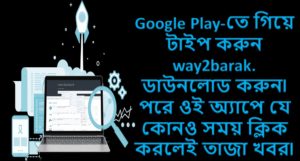 At last, on the midnight of August 15, 1947, India achieved her independence, which was Sri Sen’s sole dream like that of any other contemporary patriots. But though India became free, Sri Sen could not rejoice at the achieved independence, as it came at the cost of partition of India into two independent states— India Union and Pakistan. But he somehow consoled himself at the message given by Sardar Vallabhbhai Patel to the nation, wherein he said, “I felt that if we did not accept partition, India would be split into many bits and would be completely ruined. The best course was to hasten the departure of these foreigners even at the cost of the partition of the country.”
At last, on the midnight of August 15, 1947, India achieved her independence, which was Sri Sen’s sole dream like that of any other contemporary patriots. But though India became free, Sri Sen could not rejoice at the achieved independence, as it came at the cost of partition of India into two independent states— India Union and Pakistan. But he somehow consoled himself at the message given by Sardar Vallabhbhai Patel to the nation, wherein he said, “I felt that if we did not accept partition, India would be split into many bits and would be completely ruined. The best course was to hasten the departure of these foreigners even at the cost of the partition of the country.”
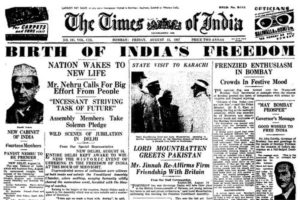 After partition, Pakistan’s local authority, Mr. M.E. Khan Choudhury, S.D.C. Maulavi Bazar called Sri Sen to participate in the celebration programme on 15 August, 1947. Sri Sen asked the S.D.C to allow to hoist the Congress flag as their party flag simultaneously with the Pakistan dominion flag, which the later denied altogether. Satyendra Sen, at this stage had no other alternative and asked all primary Congress Committees, workers & people to cease from doing any celebration in that matter and issued a general notice stating his orders and sent a copy of the same to the A.S.P, Maulovi Bazar Sub-division.
After partition, Pakistan’s local authority, Mr. M.E. Khan Choudhury, S.D.C. Maulavi Bazar called Sri Sen to participate in the celebration programme on 15 August, 1947. Sri Sen asked the S.D.C to allow to hoist the Congress flag as their party flag simultaneously with the Pakistan dominion flag, which the later denied altogether. Satyendra Sen, at this stage had no other alternative and asked all primary Congress Committees, workers & people to cease from doing any celebration in that matter and issued a general notice stating his orders and sent a copy of the same to the A.S.P, Maulovi Bazar Sub-division.
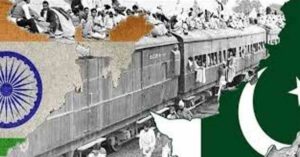 After this, the local authorities deputed I.B. Inspector to enquire whether the general notice had been dispatched throughout the entire sub-division. At this critical juncture, Sri Sen wrote to J.B. Kripalini, the then president of “All India Congress Committee’ and informed him about cancelling the celebration programme of 15 August, 1947. In response to Sri Sen’s letter, J.B. Kripalini replied him in support of his activities, vide his letter dated, New Delhi, the 24th of August, 1947. A cold war then became inevitable between the East Pakistani authorities and Satyendra Kumar Sen.
After this, the local authorities deputed I.B. Inspector to enquire whether the general notice had been dispatched throughout the entire sub-division. At this critical juncture, Sri Sen wrote to J.B. Kripalini, the then president of “All India Congress Committee’ and informed him about cancelling the celebration programme of 15 August, 1947. In response to Sri Sen’s letter, J.B. Kripalini replied him in support of his activities, vide his letter dated, New Delhi, the 24th of August, 1947. A cold war then became inevitable between the East Pakistani authorities and Satyendra Kumar Sen.
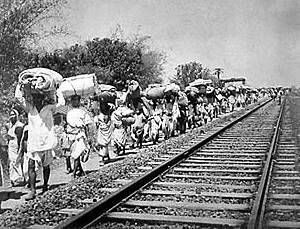 Meanwhile, Mahatma Gandhi was assassinated in New Delhi. Satyendra Kumar Sen was grief-stricken and arranged condolence meetings at Sylhet, Maulavi Bazar and many other places. Sen had taken active part in the immersion of Gandhiji’s ashes at the Manu river at Maulavi Bazar. He also led the mourning procession on 12 February, 1948. Well, this was enough for the Pakistani authorities to come in direct conflict with Satyendra Kumar Sen. At that stage, Mr. ME Khan Choudhury, SDC of South Sylhet Sub-division came in direct conflict with him. Khan asked Satyendra Kumar Sen either to leave Pakistan or to stop all political activities or else threatened him to be arrested by the Pakistani government. Finally, he decided to leave East Pakistan for good and came over to Silchar in Assam (Indian Union) on 16 September, 1948 leaving his home and hearth.
Meanwhile, Mahatma Gandhi was assassinated in New Delhi. Satyendra Kumar Sen was grief-stricken and arranged condolence meetings at Sylhet, Maulavi Bazar and many other places. Sen had taken active part in the immersion of Gandhiji’s ashes at the Manu river at Maulavi Bazar. He also led the mourning procession on 12 February, 1948. Well, this was enough for the Pakistani authorities to come in direct conflict with Satyendra Kumar Sen. At that stage, Mr. ME Khan Choudhury, SDC of South Sylhet Sub-division came in direct conflict with him. Khan asked Satyendra Kumar Sen either to leave Pakistan or to stop all political activities or else threatened him to be arrested by the Pakistani government. Finally, he decided to leave East Pakistan for good and came over to Silchar in Assam (Indian Union) on 16 September, 1948 leaving his home and hearth.
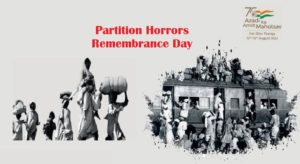 On 15 August, 1972, the late Prime Minister, Indira Gandhi honoured him along with others with “Tamra- Patra” and life-long pension for his active part in Indian Freedom Movement. at a special ceremony held in New Delhi. From 1984 till his death In 1990, he was the General Secretary of both ‘Barak Valley and Cachar District Freedom Fighter’s Association.”
On 15 August, 1972, the late Prime Minister, Indira Gandhi honoured him along with others with “Tamra- Patra” and life-long pension for his active part in Indian Freedom Movement. at a special ceremony held in New Delhi. From 1984 till his death In 1990, he was the General Secretary of both ‘Barak Valley and Cachar District Freedom Fighter’s Association.”
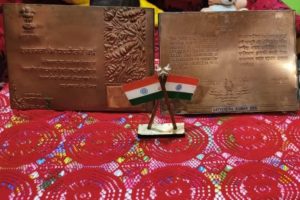
In the year 1987, he was appointed as an executive member of the “Review Committee for verification of Freedom Fighters pension” in the Deputy Commissioner’s Office Silchar. Satyendra Kumar Sen had then been suffering from throat cancer since1988. But inspite of that, he efficiently carried on the works entrusted upon him. Ultimately, he breathed his last on 1 April, 1990 at his residence in Sonai Road, Silchar.
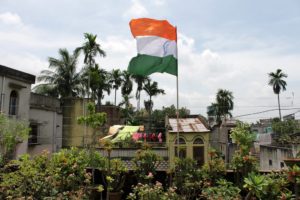 Thus ended one of the most thrilling and brilliant career of a patriot in whom as an inhabitant of Barak Valley we may definitely take pride. As India is celebrating ‘Azadi Ka Amrit Mahotsav’, the celebration seems to be incomplete without a deserving tribute to all such unsung patriots like Satyendra Kumar Sen spread across the nook and corner of the country.
Thus ended one of the most thrilling and brilliant career of a patriot in whom as an inhabitant of Barak Valley we may definitely take pride. As India is celebrating ‘Azadi Ka Amrit Mahotsav’, the celebration seems to be incomplete without a deserving tribute to all such unsung patriots like Satyendra Kumar Sen spread across the nook and corner of the country.
Sudarshan Gupta is the Head, Department of History, Radhamadhab College, Silchar





